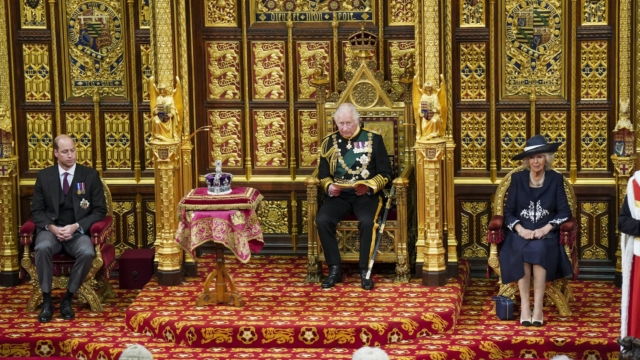Attached a copy of the lobby pack that supports the Queen’s speech. Here are some…
COVID-19 Update 7th April 2021
- New Events Guidance
DCMS has published new events guidance that includes Step 2 and Step 3.
At Step 2
An event can take place if all three of the following conditions are met:
-
- The event takes place outdoors
- Attendees are expected to arrive and leave the event in a staggered manner throughout the day
- It does not involve attendees converging on and congregating in a site for a specific discrete performance or activity, such as a theatre or music performance, OR
Or the event is a drive-in performance or show.
Examples of events that fit this criteria include
- Agricultural/flower/garden shows
-
- steam rallies
- car boot sales
- community fairs/village fetes
- animal and pet shows
- funfairs and fairgrounds
- food and drink festivals
- drive-in cinemas and drive-in live performance events
At Step 3:
An event can take place where:
- People are likely to congregate in one area for the duration of the event.
- People are likely to enter or leave the venue in large numbers at a similar time.
Examples of events that fit this criteria include:
- business events such as conferences, trade shows, exhibitions, charity auctions, and private dining events such as charity or gala dinners and awards ceremonies, and corporate hospitality
- cinemas
- live performances
- circuses
- air shows
- historical /battle re-enactments
- live animal performances such as falconry displays at events
- non-elite and professional sporting events
All events recommencing at Step 3 will be subject to the following capacity caps:
- 1,000 people or 50% of a venue’s capacity, whichever is lower at indoor events
- 4,000 people or 50% of a site or venue’s capacity, whichever is lower at outdoor events
Capacity restrictions must be adhered to at any point throughout the event. For example, a theatre can admit over 1,000 people in a single day, but no more than 1,000 people at one time. If an event runs over the course of multiple days, no more than 1,000 people should be admitted at any one time over that period. If a single venue hosts multiple different events at one time, and the attendees of each event are separated for the duration of the event (for example, a cinema with multiple screens, oran exhibition centre hosting multiple business events), the 50% capacity cap will apply to each individual event, rather than the venue.
It is important to note that capacity limits refer only to customers. Staff, workers, volunteers, speakers, exhibitors etc are covered by the work exemption and are not included the capacity limit.
- Events Guidance for Local Authorities
As a companion document to the guidance for businesses regarding Events, DCMS has also produced guidance for local authorities to use when assessing whether to give permission for events to take place. It is useful for businesses to be aware of this when entering discussions with Local Authorities on how their event should take place.
- WTTC Impact Assessment
WTTC have [published their latest Economic Impact Report which finds that travel and tourism revenue fell from £238 billion (10.1% of UK GDP) in 2019 to just £90 billion (4.2% of GDP) last year. They have calculated that this fall in revenue has resulted in the loss of 307,000 Travel & Tourism jobs in the UK.
- Guidance For Out of School Settings
The guidance for businesses or charities providing out of school activities and care for children has been updated to take account of the relaxation that will come into effect on Monday 12 April. From Monday, operators can offer provision to all children, without restriction on the reasons for which they may attend.
- Quarantine Guidance Updated
The guidance for people quarantining at home after arriving into the country has been updated to clarify details on travelling to get a test swab taken and how people can raise issues related to the test product that they are using.
https://www.gov.uk/guidance/how-to-quarantine-when-you-arrive-in-england
- VisitEngland Sentiment Tracker
VisitEngland has published wave 27 of their Consumer Sentiment Tracker which covers fieldwork conducted between 22-26 March.
Confidence and overnight trip intent are marginally down, as is the proportion expecting normality to return to their lives by the end of the year (50%). There is a higher proportion of spring trip intenders saying they have already planned and booked their overnight trips, which now stand at 50% and 44% respectively. However, bookings for summer trips remains flat at just 19%. 17% of adults now plan on taking a day trip within the next two weeks, which is significantly up on last wave.
Highlights from wave 27 include:
-
- The national mood is up 0.2 points to 6.7/10
- The same proportion consider the ‘worst is still to come’ compared to wave 26 (17%).
- The Appetite for Risk score is stable at 2.4/4, with ‘visiting a busy city centre’ having the lowest score among the various activities listed (also stable at 2.0).
- Almost half of adults anticipate taking more or the same number of overnight domestic trips between now and end of the year compared to normal. This compares with just over a quarter of adults with similar intent regarding overseas trips.
- Confidence edges down, with 33% fairly/very confident a trip booked for this June could proceed as planned (down 5 points)
- 14% anticipate taking an overnight trip this spring (Apr – June) rising to 35% during the summer (July – Sept). This compares to 16% and 37% respectively last wave.
- Among those who are intending to take a trip this spring, 50% have reached the planning and 44% the booking stages of their trips, which is up from 43% and 29% respectively last wave.
- The South West remains the lead destination for spring trips with a commanding 24% share; 12 percentage points ahead of second placed North West.
- The leading destination type for spring trips is ‘traditional coastal/seaside town’ (32%) narrowly ahead of ‘countryside or village’ (31%).
- The accommodation types most likely to be used on overnight trips this spring are ‘commercial rentals’ (e.g. holiday cottages) on 39%, ‘camping/caravan’ (37%), ‘Hotel/motel/inn’ (34%) and a ‘private home’ (also 34%).
- Some 43% of UK adults intend to take a day trip to a ‘traditional coastal/seaside town’ and 42% to a ‘countryside or village’ destination at some stage this spring/summer. This compares with 23% intending to visit a ‘large city’.
https://www.visitbritain.org/covid-19-consumer-sentiment-tracker


